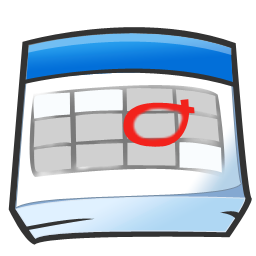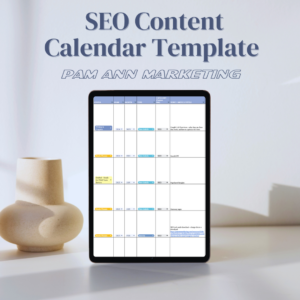 What IS an Editorial Calendar?
What IS an Editorial Calendar?
An “editorial calendar” may sound like a complicated thing, but in fact it is a simple tool that can make or break your blogging success. The term “editorial calendar” simply refers to a schedule of what you are going to blog about and when. It may cover several weeks, several months, or even a year, but the purpose is to plan ahead as much as possible.
PS – We have a FREE SEO Content Calendar template you can download to get started!
Benefits of an Editorial Calendar
Creating an editorial calendar planned for the coming weeks or months will contribute to the success of your blog because doing so:
- Deters writer’s block
- Helps you organize different topics so that they are spread out logically and evenly
- Allows you to blog in advance so that the flow of content keeps going when other things in life get in the way
Laying out topics weeks or months in advance takes the stress out of that moment when you finally have a chance to write a blog post and you’re sitting there wondering “What the heck am I going to blog about?” It even allows you to get ahead so that when life inevitably gets in the way, your blog continues to succeed.
An editorial calendar also helps create a logical structure to your blog. Laying out all the topics in your head in one place allows you to split certain topics into “series” that people can expect to see at a certain time. For example, a nutritionist may want to blog about vitamins on Mondays and recipes on Fridays. Sorting ideas into series like this with a set schedule creates a level of anticipation from your readers that will keep them committed to reading your blog.
How to Create an Editorial Calendar
There’s no exact science to creating an editorial calendar. If you prefer paper, you can write out a list, categorize it, and then copy it over to a paper calendar. Or you can do the same thing with an electronic spreadsheet and an electronic calendar, such as Google Docs and Google Calendar. However you wish to put it together, the important part is getting your ideas laid out ahead of time and scheduling them for specific timeframes.
Just Don’t Chisel it in Stone.
Just because you’re laying out a very organized and methodical plan does not mean you HAVE to stick to it NO MATTER WHAT. You can be flexible with your editorial calendar, and it is actually beneficial to do so sometimes.
Perhaps a certain current event ties into a topic that you had planned for next month. If it benefits your blog to switch stuff around, then, by all means,, switch it around. Or if a moment of extreme creativity strikes, don’t refrain from running with it because your editorial calendar says you have to blog about something else that week. When the juices are flowing, go with the flow, but have your editorial calendar armed and ready for those moments when writer’s block strikes or when life inevitably draws your attention elsewhere.
Download the Free Template
We offer a free download of an editorial calendar template to get you started!
- Google is Helping U.S. Government Sites Advertise the Sale of Illegal Drugs - October 16, 2024
- Google Has Been Ruled a Monopoly in Antitrust Lawsuit (Video) - August 9, 2024
- New Domain or Subdomain? Which is Better for SEO? - October 13, 2023

